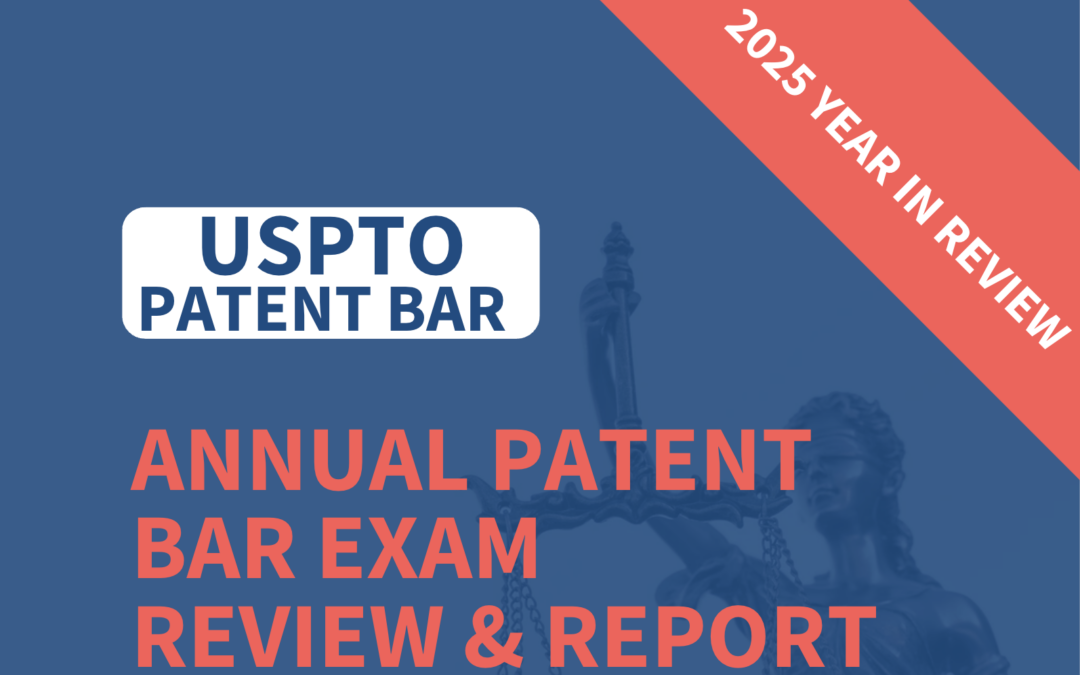Ever wondered if you can take a leap into the patent law world before even stepping foot in law school? It’s a path less traveled but absolutely possible. Taking the patent bar before law school isn’t just a bold move; it’s a strategic one that can set you apart from your peers. This article will guide you through the why and how of tackling the patent bar early, giving you a head start in the competitive field of patent law. With a clear understanding of the patent bar’s requirements and benefits, you’ll be well on your way to making an well-informed choice about your future in law.
The Patent Bar and its Significance
When diving into the area of patent law, understanding the patent bar exam is crucial. This standardized exam isn’t just another hurdle; it’s a gateway for professionals like you to practice patent law before the United States Patent and Trademark Office (USPTO). Unlike other areas of law, where your legal practice begins post-law school, the patent bar offers a unique start ahead of the game.
Eligibility is the first checkpoint. The USPTO requires candidates to have a background in science or engineering. This ensures you’re equipped with the technical foundation necessary to comprehend and evaluate inventions. Your degree, be it in physics, chemistry, biology, or engineering, paves the way for this specialized legal career.
Why It Matters
Taking the patent bar before law school has its perks:
- Early Entry: You enter the field of patent law as a registered patent practitioner, setting you apart from your peers.
- Strategic Advantage: Having this certification on your resume enhances your appeal to law schools and future employers, signaling a serious commitment to specializing in patent law.
- Practical Experience: It opens the door to working in patent law earlier, allowing you to gain invaluable real-world experience that can complement your law school education.
Preparing for the Exam
Preparation is key. The patent bar exam is renowned for its rigorous nature, testing your understanding of patent law and procedures. Here are essential steps to gear up:
- Study Materials: Invest in quality preparation courses and materials specifically designed for the patent bar exam.
- Practice Tests: Familiarize yourself with the format and types of questions through practice tests.
- USPTO Guidelines: Stay updated with the latest USPTO rules and regulations; these are often directly tested.
As you march forward, remember, tackling the patent bar before law school isn’t just about passing an exam. It’s about laying a robust foundation for your future in patent law, positioning you strategically within this competitive field.
Advantages of Taking the Patent Bar before Law School

If you’re on the fence about taking the patent bar before law school, understanding the clear benefits should help guide your decision. Engaging with this challenging exam beforehand sets a precedent for your future career in ways you might not have considered.
First off, early eligibility to practice before the United States Patent and Trademark Office (USPTO) is a considerable advantage. Upon passing the patent bar, you’re immediately granted the title of Patent Agent. This status allows you to draft and prosecute patent applications, an invaluable skill that can be honed long before you earn your law degree. The real-world experience gained in this capacity is not only enriching but also enhances your understanding of patent law from a practical standpoint.
Also, having the patent bar under your belt gives you a competitive edge in law school admissions. Admissions officers look favorably on candidates with this qualification, as it demonstrates initiative, specialized knowledge, and a clear commitment to pursuing a career in patent law. It signals that you’re not just ready for the academic challenge of law school but also for the professional responsibilities of a patent lawyer.
Another benefit is the financial advantage. Working as a Patent Agent can provide a significant source of income during law school. Notably, Patent Agents often command higher salaries than positions typically available to law students without this certification. This financial independence can reduce the debt burden associated with law school tuition and living expenses, offering a measure of financial relief during your studies.
Finally, early exposure to patent law through the lens of a Patent Agent can inform your specialization in law school. With a solid understanding of patent application processes and patentability criteria, you’ll be in a position to select courses that complement and deepen your expertise, rather than starting from scratch. This strategic approach to your education can streamline your path to becoming a Patent Attorney, making you a more effective and knowledgeable professional from the get-go.
Preparation is key when taking the patent bar, with a focus on USPTO guidelines and regulations. Delving into these complex materials can be challenging, but it’s a critical step in ensuring your success on the exam and your subsequent career in the field of patent law.
Requirements for Taking the Patent Bar

Before you can set foot into the world of patent law, it’s essential to understand the prerequisites for tackling the Patent Bar Exam. This test is your gateway to practicing before the United States Patent and Trademark Office (USPTO), but not everyone is eligible to take it.
First and foremost, you must have a scientific or technical background. This requirement is non-negotiable. The USPTO stipulates that candidates must hold a bachelor’s degree in engineering or physical science, or an equivalent qualification. Here’s a quick rundown of accepted degrees:
- Biology
- Biochemistry
- Computer Science
- Engineering (all branches)
- Physics
If your degree isn’t on the list, don’t lose hope. The USPTO offers alternative paths through category B and C qualifications. Category B allows for candidates with enough scientific and technical credits, whereas category C requires passing a proficiency test.
Secondly, you need to be eligible to work in the United States. This means you should be a U.S. citizen or have a visa that permits you to work in the country.
Good moral character and reputation are also essential. You’ll need to pass a background check, proving you haven’t been involved in activities that would raise questions about your ability to practice law ethically.
Finally, familiarity with USPTO rules and regulations is crucial. While not an official prerequisite, understanding the administrative side of patent law will significantly aid in your exam preparation and future career.
| Requirement | Details |
|---|---|
| Scientific or Technical Degree | Engineering, Physics, Biology, etc. |
| Eligibility to Work in the U.S. | U.S. citizen or permitted visa holder |
| Moral Character | Background check with no ethical or legal violations |
| Familiarity with USPTO Rules | Strongly advised for exam preparation and career success |
Understanding and meeting these requirements is your first step towards a successful career in patent law. Next, we’ll jump into the best strategies for exam preparation to ensure you’re fully equipped to ace the Patent Bar.
Preparing for the Patent Bar Examination

Embarking on your journey to pass the Patent Bar Exam is a pivotal step towards practicing before the US Patent and Trademark Office (USPTO). Preparation is key, and understanding what it entails can significantly streamline your study process and increase your chances of success. Here’s how you can effectively prepare for the Patent Bar Examination.
Firstly, familiarize yourself with the exam format and content. The Patent Bar Exam is a computer-based test comprising 100 multiple-choice questions, covering various aspects of patent law and USPTO procedures. You’ll need a deep understanding of the Manual of Patent Examining Procedure (MPEP), as it’s the primary reference for the exam.
Develop a study plan that incorporates:
- Detailed review of the MPEP: Jump into each chapter, summarizing key points and understanding procedural steps critically.
- Practice exams: Regularly taking practice tests can help you gauge your understanding and readiness for the actual exam. Feedback from these practice sessions is invaluable for identifying areas that require more focus.
Consider enrolling in a Patent Bar review course. These courses offer structured study materials, practice questions, and simulations of the real exam environment. They can provide clarity on complex topics and enhance your learning experience. While optional, many candidates find the investment worthwhile for the comprehensive preparation they offer.
Staying organized and persistent is crucial. Patent law is detailed and expansive, making it easy to feel overwhelmed. Break down your study sessions into manageable chunks, and don’t hesitate to revisit challenging concepts until you’re confident.
Finally, ensure you meet the USPTO’s eligibility requirements before diving deep into your studies. Verify your qualifications against the criteria outlined for taking the Patent Bar Exam to avoid any setbacks later on.
By approaching your preparation with a clear, strategic plan, you can conquer the Patent Bar Exam and take that significant step into the world of patent law.
How Taking the Patent Bar Early Can Benefit Your Future in Law
Taking the Patent Bar Exam before attending law school is a strategic move that can offer you a plethora of benefits shaping your career trajectory in the legal field. It’s a decision that places you ahead of your peers, potentially setting a solid foundation for your future in law. Here’s how:
Stand Out to Potential Employers
Firstly, having passed the Patent Bar demonstrates your commitment and ability to take initiative. It is a distinguishing credential that sets you apart from other law school applicants and future job seekers. Law firms value candidates with a technical background who are also admitted to practice before the United States Patent and Trademark Office (USPTO). This can lead to internships and job offers even before you graduate.
Early Exposure to Patent Law
Passing the patent bar early grants you the privilege of practicing patent law, specifically drafting and prosecuting patent applications, under a registered patent agent or attorney’s supervision. This exposure to real-world patent law scenarios enriches your understanding and appreciation of intellectual property law, far beyond what’s covered in law school courses alone.
Increases Flexibility and Career Choices
With the qualifications to practice in front of the USPTO early on, you’re not just limited to working in intellectual property law; it can enhance your appeal in related fields too. Biotechnology, pharmaceuticals, and technology companies, for instance, look favorably upon law graduates who can navigate the complexities of patent law.
Financial Advantages
Taking the Patent Bar before law school can also have financial benefits. Being a qualified patent agent can open up part-time job opportunities while you’re in law school. These roles often offer higher pay than typical student jobs, potentially easing student loan burdens.
By considering the Patent Bar Exam as a step to take before law school, you’re not just planning for an education; you’re strategizing for a career. It’s an investment in yourself that could pay significant dividends throughout your future in law.
Conclusion
Tackling the Patent Bar Exam before diving into law school is a strategic move that can set you up for success. It’s not just about getting ahead—it’s about making a wise investment in your future. With the benefits ranging from demonstrating your dedication to potential law schools and employers to gaining a head start in the competitive field of patent law, the advantages are clear. Plus, the financial perks can’t be overlooked. So, if you’re eyeing a career in law, especially in the patent domain, consider this path. It’s a decision that could pay dividends for your career.










